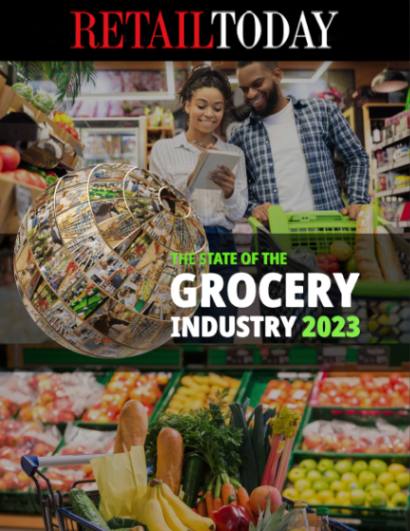Significant transformation is taking place across the fuel and convenience retail industry, from inflation and workforce challenges to changing consumer behavior and the increasing demand for and adoption of innovative technology. PDI Technologies, a global leader delivering powerful solutions and insights that serve as the backbone of the convenience retail and petroleum wholesale ecosystem, identified four key trends ahead of 2023.
Connecting Convenience amid Uncertainty
Historically, convenience retail performs well in an economic downturn as consumers seek tradeoffs for more costly conveniences like coffee and prepared foods, even when fuel consumption might be down. To remain resilient, it’s important to create perceived value through differentiation from the competition with relevant, timely offers and even more efficiency for consumer’s daily routines.

“There is ample opportunity to provide good value and convenience in a recessionary environment,” said Jimmy Frangis, Chief Executive Officer at PDI. “While it might seem like now is the time to slow down, it’s important for operators to make smart investments that can lead to added value for consumers. These investments can help elevate the transaction experience, streamline operations, and accelerate profitability.”
Adapting to Changing Consumer Behaviors
Consumer shopping behavior is in a constant state of flux, especially in an uncertain economic environment. Having an accurate understanding of consumer purchasing patterns and preferences allows c-stores to improve loyalty strategies, identify areas to streamline workflow and staffing, and improve the shopping experience for increased revenue potential. Utilizing data and insights to better inform decision making, marketing strategy, and product mix can be invaluable.
Finding a way to connect with customers, both new and old, is key to increasing revenue and repeat store traffic. By recognizing the psychology of the convenience consumer, which oftentimes is driven by price rather than brand, c-stores can highlight bargains and deals or enhance loyalty apps to help them analyze customer data and purchase patterns.
For instance, PDI Insights data revealed decreases in trips to the pump and c-store but increases in basket spend in 2022, especially when gas prices rose significantly over the spring and summer months. Delivering the right loyalty programs and offers can help maximize the trips shoppers do make, giving operators a better understanding of what matters to customers outside the store, including the rising interest in sustainable technologies.
Elevating Security Concerns
As convenience retailers implement new solutions and IoT devices to improve their relationships with customers, there comes an increased risk of security breaches. The adoption of technologies such as self-checkout, the demand for guest Wi-Fi, and expanding usage of consumer loyalty apps have all broadened the potential points of vulnerability, which require a response from convenience retailers to protect their systems and data. Being proactive reduces the chances of a security breach impacting the business or customers, making the detection of any gaps and vulnerabilities a critical step in strengthening overall security posture and reducing risk.
“On one side, you need to protect your physical assets and infrastructure,” said Linnea Geiss, Chief Operating Officer at PDI. “But you also need to secure the digital realm beyond the walls of your business, proactively monitoring for bad actors and potential threats across your supply chain. This can be increasingly difficult due to a shortage of skilled cybersecurity professionals. By partnering with managed services providers like PDI, you don’t have to go it alone.”
Decreasing Friction through Digitization
While sometimes lagging in innovation due to complicated legacy systems, the c-store and fuel industry is undergoing a significant transformation to improve front- and back-end operations. The pandemic accelerated the need for convenience retailers to implement a more frictionless customer experience, including delivery services, mobile ordering capabilities, loyalty programs, and more. Back-end management tools also are being employed to increase efficiency and decrease the impact of the labor shortage, especially in areas like foodservice that are expected to continue growing in 2023.
“The convenience retail industry is embarking on a distinct period of change,” added Geiss. “Those who adopt technological solutions that deliver a better customer experience in-store and at the pump will be best positioned to optimize opportunities in the future. The healthiest operators will prioritize revenue-generating investments and maximize their understanding of data into the new year and beyond. This approach will benefit stakeholders across the ecosystem, from CPG brands to consumers and ultimately retailers themselves.”





